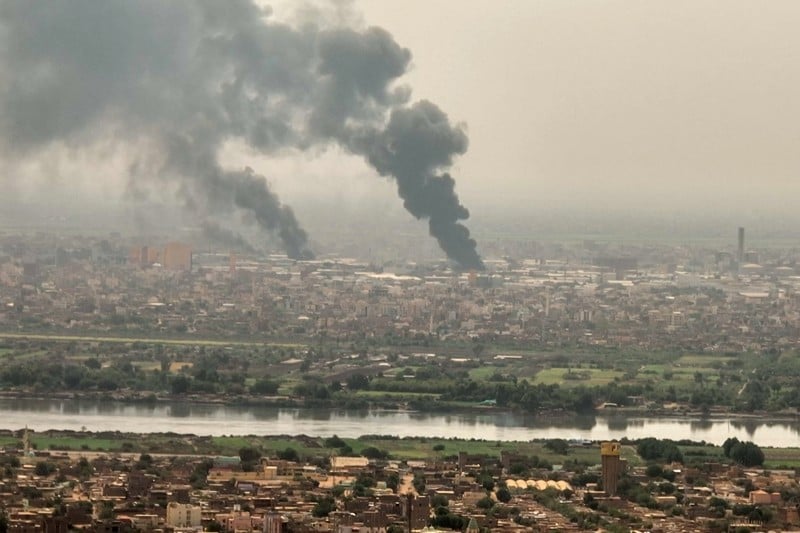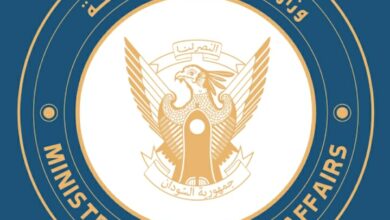
Breaking news
Jeddah negotiations issue of war and peace in Sudan * between tactical and strategic (goals, fallacies, and upcoming scenarios)
- By : D . ELRASHID Mohamed Abrahim Alrashid Professor of political science and international relations. conceptual introduction Conflicts and wars have been experienced by many peoples and countries, including the hundred and thirty years, with varying degrees of intensity
severity from one country to another.
War is the worst means of resolving disputes, and the tools of resolution range from negotiation, arbitration, reconciliation, judiciousness, or judicial judgment to the last method, which is the use of armed force to resolve the conflict.
It is known that conflicts are resolved in one of two ways.
The first. It is negotiation and agreement. The second is military decisiveness and forcing the strong side of the weak to surrender. Examples of that are World War II and the surrender of Japan after Hiroshima and Germany after the Allied invasion of Berlin. It is the nature of war that the victorious party determines the conditions for the end-of-war procedures. Dalil said that the arrangements that followed World War II were what arranged the world order. On the security side, the Allies shared the right to veto criticism in the Security Council. In the economic arrangements that followed the war, the IMF, the World Bank, the dollar clearing house, and swift wire were established. Thus the United Nations agencies for food, health, refugees, and other regulatory measures imposed by the victorious power in the war.
What is happening in Sudan today is an internal war, the subject of which is the rebellion of the Rapid Support Forces, whose law, approved in 2017, defines its subordination to the army, and the national consensus and all political understandings agree on the need to integrate it into the Sudanese Armed Forces. This trend is consistent with the regional and international environment, which stresses the importance of a unified Sudanese army for the necessities of the survival of the state to prevent collapse and disintegration. How does the army view the Jeddah negotiations? The Sudanese Armed Forces are represented by Major General Abu Bakr Faqiri, a professional officer of the 39th batch, and director of the Department of External Relations at the Ministry of Defense, who holds a doctorate in international law. The delegation also includes Major General Mahjoub. The Navy, in addition to Ambassador Omar Mohamed Ahmed Siddig, the former Sudanese ambassador to China. The rebel Rapid Support Forces are represented by al-Quni Hamdan Musa Dagalo, the third man in the Rapid Support Forces, responsible for force procurement and director of the Dagalo family’s investments.
Brigadier General Omar Hamdan, a former officer in the Armed Forces, batch 43, is one of the three who left after the army decided to end the assignment of its officers in the Rapid Support Forces, according to Hamidti’s account to a satellite channel.
Faris al-Nour is a legal advisor to the leader of the rebellion. He is known for his affiliation with the Brotherhood during the period of al-Bashir’s government. He heads the Mujaddidun Organization and is known locally as one of the converts. The position of the military establishment was summarized by Brigadier General Nabil Abdullah, the official spokesman for the armed forces, to the effect that the Jeddah talks are to discuss the extension of the truce and its mechanisms to benefit from it for the humanitarian purposes of our citizens and not to discuss permanent shooting or political negotiations. What the army is doing now is what any army in the world is doing when a military faction rebels against it and targets its headquarters and the capabilities of the state. Spokesmen for the rebel forces, most of whom are political advisors and do not have military backgrounds, state that the purpose of the Jeddah negotiations is to discuss a permanent cease-fire and demand international monitoring and link that to a return to the framework agreement, the main reason for the outbreak of the crisis.
Statement by the Saudi Foreign Ministry The country hosting the talks The aim of the current negotiations is a short-term ceasefire and the opening of safe corridors for humanitarian action.
By reviewing the two positions of the negotiating parties, the reader can read the military field position in terms of strength and weakness, as well as the political vision in terms of inclusion or abduction. Format and method of negotiation
It is indirect, that is, from behind a veil, meaning that the two parties do not sit at one table, and this has implications in terms of the nature of the conflict and its characterization by tension, lack of confidence, and concentration and entrenchment around the strengths and weaknesses of the other. Mediation Type - The two parties to the mediation are the Kingdom of Saudi Arabia and the United States of America, and it is thus effective mediation in the sense of the mediators’ ability to motivate the parties to the conflict in the event of response or punishment and intimidation in the event of reluctance and non-compliance, but this definition is read in conjunction with the concept of conflict, interest, and the strategic convergence of mediators and their vision of what is happening in Sudan And their support for the strategy of stability in the region, and I am satisfied with these references, because the details may take us outside the topic of the strategic report for the negotiations. Obstacles to the negotiation round First: The international legal status of the Rapid Support Forces rebellion and its characterization as an armed group according to the description of the United Nations and the international law approved in the year 1929 AD and ratified by Sudan in the year 1957 AD. Second: The issue of constitutional legitimacy, since the negotiations between the Sudanese government and which is represented by the army, under the specialized nature of the conflict, considering it a military action that falls within the jurisdiction of the Sudanese Armed Forces Law. While the rebel forces suffer from a crisis of internal and external recognition as a condition that has accompanied the rebel Rapid Support Forces since its inception, as it has been suffering from a crisis of identity and belonging since its founding and the fluctuation of its subordination from the National Intelligence Service to the Presidency of the Republic before the army made its technical decision since the days of former President Omar Al-Bashir and his statement that the militia is not fit to work within the system of the armed forces and its nobility in the organization and the military traditions observed and watered from the norms of Sudanese society, which is the secret of its nationalism and distinction, which made it the last pillar to defend the survival of the Sudanese state, and the things against it are known.
- Highlights of strengths and weaknesses *. The Sudanese army enters the negotiations after it succeeded in thwarting the rebellion scheme by occupying the General Command of the Armed Forces and the Republican Palace and controlling the reins of government in the country, in what was known as shock absorption, and after striking the headquarters of the rebel forces and their leadership, paralyzing the system of control and control, and cutting its supply lines, now it is working to establish control and stabilize the situation.
Control over the situation in 16 of the 18 states of Sudan, except some pockets in Khartoum and the states of C and G of Darfur.
Support, public and popular support, and the delights of support in different parts of the country under the saying of the immortal slogan * (One army, one people)*
As well as the external understanding of what is happening in Sudan, and that the survival and stability of Sudan depend on the cohesion of the Sudanese Armed Forces, as its collapse means the disintegration and annihilation of the state, and that the regional and international situation cannot bear this vacuum, especially in the world after the Russian-Ukrainian war and its repercussions on Africa and the state of polarization and counter-polarization.
Strong support from the African Union and the Arab League. - For the rapid support of rebels * The most prominent strengths are the good relations of its allies from the Forces of Freedom and Central Change with some Western circles.
The control of the rebel forces over health centers and hospitals such as East Nile Hospital, doctors, and Ibn Sina, as well as public service stations such as water, electricity, fuel, and gas stations, and exerting pressure on the government and the army to take the state of human suffering as a tool of war management, which is a double weapon with varying results and effects. expected scenarios Perhaps it is useful to recall the precedents of the experiences of the Kingdom of Saudi Arabia in such cases as the situation in Sudan. And mention them. - Taif Agreement * The Kingdom’s mediation in the Lebanese crisis, led to the situation remaining as it is now, including Hezbollah in the southern suburb.
- Mecca Agreement * The mediation of the Palestinian reconciliation between Fatah and Hamas and its subsequent consequences.
first scenario
In this kind of acute conflict, which is often not divisible by two, it is difficult to achieve results at first glance, and postponement may remain possible for consultations or agreement at another time. second scenario
If the armed forces insist that the RSF rebels leave the homes of citizens and not expose them to danger, it will be followed by a withdrawal from hospitals, water, electricity, and fuel stations, but the problem of guarantees and the location of the withdrawal and stationing of the new rebel forces will emerge. It also raises the question of whether the leadership of the rebellion can pay the bill for this decision, which practically means the liquidation of the presence of the Rapid Support Forces, at least in the state of Khartoum so that they are spread in neighborhoods among citizens in buildings, facilities, and treetops.
A proposal may arise from the mediators for a partial cease-fire, interspersed with international monitoring, to open humanitarian aid paths, but this proposal may collide with the bureaucracy of forming slow monitoring mechanisms, and the dynamics and mechanics of military operations on the ground may occur in which changes and changes may re-or confuse the accounts of the negotiation process. Which is more likely after the first scenario. Khartoum
Tuesday, May 9, 2023 AD.



